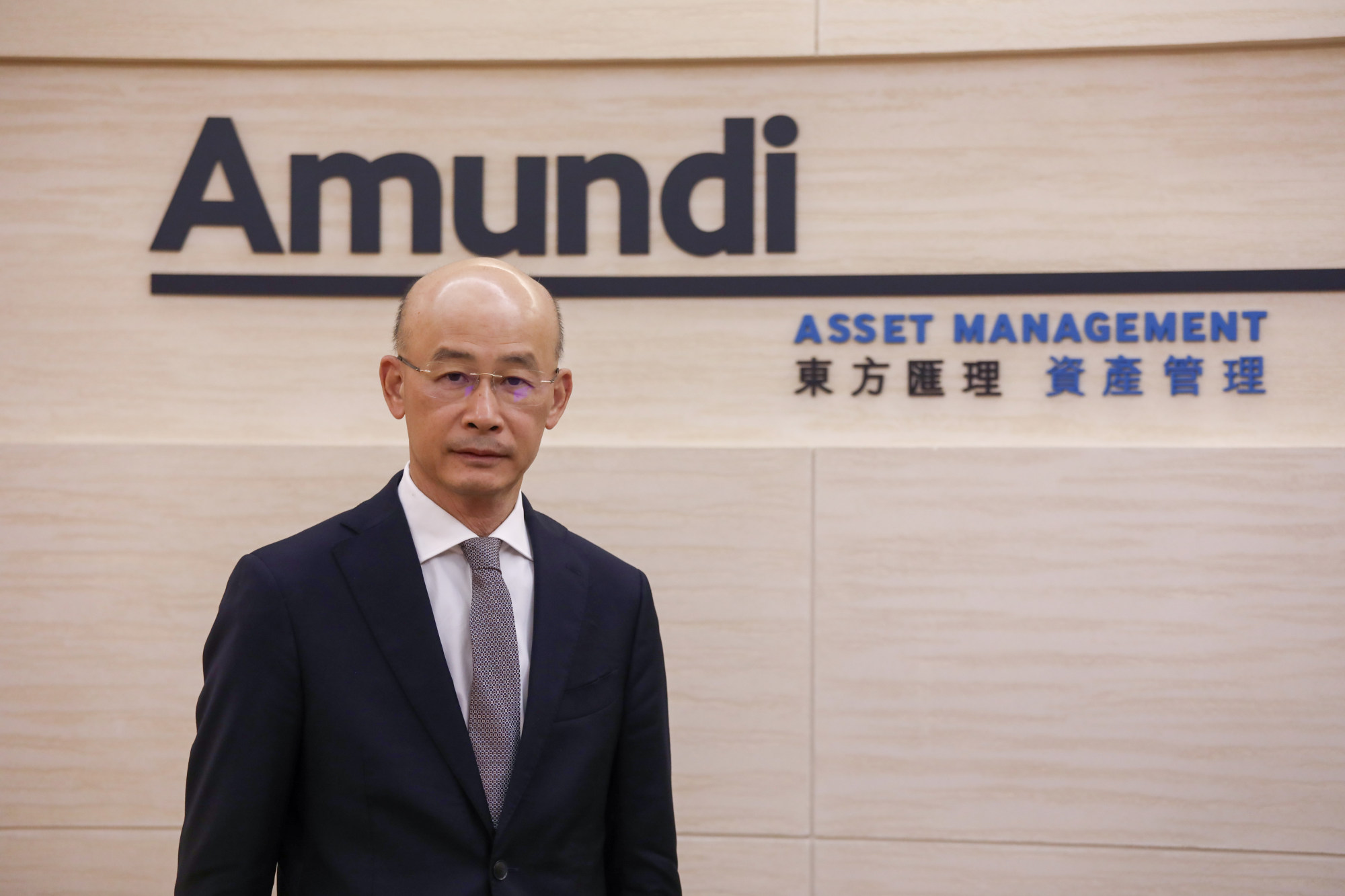Amundi, Europe’s largest fund manager with almost €2 trillion (US$2.1 trillion) of assets under management, has created new posts to gear up in Asia-Pacific, as the region is set to see faster growth than the rest of the world, according to its CEO.
The company promoted Xiaofeng Zhong, formerly chairman of Greater China, to vice-chairman of Asia and hired Eddy Wong, formerly CEO of JPMorgan Asset Management China, as its Asia CEO.
Valerie Baudson, CEO of Paris-based Amundi, said these are newly created posts to strengthen the Asia leadership team as part of the company’s plan to expand in the region.
“The growth of the asset management industry in Asia will be faster than it is in other parts of the world,” Baudson told the Post in an exclusive interview last week. “It is a very strategic region for us, so we are reinforcing our management team in Asia. In the long run, we will develop ourselves in all areas in Asia.”

Asia accounts for about 20 per cent of Amundi’s assets under management, and the company has operations in Hong Kong, Singapore, mainland China, India, South Korea, Thailand and Malaysia.
“What is more important is the growth rate in Asia,” Baudson said. “We have seen a strong growth rate in recent years, and the growth rate will continue in the future.”
The firm now has about €400 billion under management in Asia, and is on course to meet its medium-term target of boosting this by another 25 per cent to €500 billion by 2025, she said.
Hong Kong poised to manage ‘lion’s share’ of Asia’s wealth: JPMorgan head
Hong Kong poised to manage ‘lion’s share’ of Asia’s wealth: JPMorgan head
Demographics account for Baudson’s positive outlook for Asia, due to the region’s massive population.
“This is also where the population is ageing, which is incredibly important for the fund industry because we are dealing with a lot of retirement solutions,” Baudson said.
Around 28 per cent of China’s 1.4 billion people will be more than 60 years old in two decades’ time, up from 18 per cent currently, according to the World Health Organization.
Amundi and other large international players, including HSBC, Allianz Global Investors and Manulife Investment Management, are keen to capture some of China’s private pension business, which is expected to be worth around 10 trillion yuan (US$1.37 trillion) by 2030, according to consultants McKinsey.
Hong Kong sets up first wealth academy to nurture talent for family offices
Hong Kong sets up first wealth academy to nurture talent for family offices
“The city is a natural gateway to mainland China, where the funding needs to manage the business transition for ESG [environmental, social and governance] are huge,” Baudson said.
Amundi currently has a neutral view of the Chinese market, but some of its institutional clients have started turning bullish.
“We have clients who are starting to reinvest in China,” she said. “Recently, we won a very large mandate from one big institutional client who wanted to invest in Chinese equities.
“For Amundi, China is not a short-term story. We will not get in and out of the markets for short-term investment. We are absolutely certain that China is a very large market for the long run. We have been here for 40 years, and we are going to stay for another 40 years and more.”

